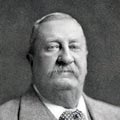In July, 1903, I was engaged by the Challana and Tongo Rubber Company to go and find out the conditions on which the Indians of Challana would tap rubber for them. It was freely given out at the time that no white man had been to Paroma, their capital, and returned safely since 1845; and my plan was to go to Paroma and see the chief of the Indians and his head men, and hear what they had to say.
The Challana Tongo Concession was originally bought from the Bolivian Government by the father of Colonel Nunez del Prado, who paid them a sum of money in cash, and a yearly rental. When he died, he left the concession to his son, who turned it over to a Company in return for a sum down, and a rental of £1,000 a year.
The last expedition into the interior by this Company to pick rubber had turned out a complete failure. Of the three white men in charge, two were murdered by the Indians; the manager, Filippo Barbari, an Italian, had had his hands and feet cut off, and was then thrown into the river, and Rodriguez, the storekeeper, had his head cut off. The third, Donovan, the book-keeper, got away by hiding in the day-time, and following up the river at night, till he got out of the Indian territory; he was the only one who came back to tell the tale. All the rubber and stores were stolen. The Government at La Paz then thought it necessary to despatch an expedition of 200 soldiers under Captain Cusicanque, with orders to punish the Indians, and also to find out what had happened to Captain Lorenzo Villarde and his lieutenant, Macedonia Villavicencia, who had been sent back as an escort with the Cacique of Challana, after his visit to the authorities at La Paz. Some of the soldiers fell sick with the puna or siroctre (mountain sickness), and others were attacked in the forest by terciana (malarial fever), after crossing the Ylliapo range; however, the rest arrived safely with their captain at the Challana River, which the natives regard as their boundary. To their great surprise, they were met there by Indians armed with rifles, and ready to resist them, under the leadership of Villarde, the very man they had come to rescue. Cusicanque gave the order to fire, but the soldiers refused to obey him, saying that they could not fire on their old captain; most of them actually abandoned Cusicanque, and he was compelled to return to La Paz with 50 men, without their arms. Plans were made to send another expedition at the expense of the Challana Rubber Company, and the Bolivian Government promised to lend 200 soldiers; but it was found that the expense would be too heavy, and it was finally decided to get some one to go in and find out the facts personally, and try to discover what kind of a bargain could be made with the Indians for tapping the rubber.
The Company then made preliminary arrangements to sell the concession to an American Company for £100,000, to be paid half in cash, half in shares, but they stipulated that before anything could be done it would be necessary to send in some reliable man to see what terms could be made between the Indians of Challana and the Government of Bolivia. They realized from the first that to secure such a man a good offer would have to be made, and they promised expenses and £6,000 commission, if the concession was taken over within two years.
The first person to undertake the job was a Mr. Staedlier, the Vice-Consul for Belgium in Bolivia. His mother, who was living with him in La Paz, went to considerable expense to supplement his equipment for the trip.
Accordingly, he started off on his perilous journey. When he got to the boundary, he was met by an Indian with a letter of warning for him on a stick, telling him that his party would not be permitted to cross the River Challana—that they must return at once, and that they must leave behind them all their tents, gear, goods, their diving apparatus, and pipes for gold-washing and their two Kodak cameras, also all their clothes, coats and other garments, with the exception of a shirt and a pair of pants each. They were given till midday the next day to move.
That night they were surrounded by many fires, and when Staedlier saw that he was encompassed by so many armed Indians he thought it only prudent to return. When he got back to Sorata, he had to send a boy back to his mother, asking her to send him some clothes for his journey back to La Paz.
I was told all about this by Mr. Leguia, then Minister of Hacienda, and afterwards President of Peru, and when he asked me if I would care to undertake the trip I accepted at once. An agreement was drawn up whereby I was to be paid all expenses, and a sum of £10,000, if the U.S.A. or any other government took over the concession within two years of my return.
I had several reasons for undertaking this journey. Firstly, I was anxious to visit Lake Titicaca, the highest navigable lake in the world, and I wanted very much to get up close to one of the highest mountains in the world, the Peak of Sorata. Then there was the long and interesting march through the tropical forest to Paroma, the capital of Challana, and getting back again, a thing which no white man had done since 1845. Last, but not quite least, there was the £10,000.
